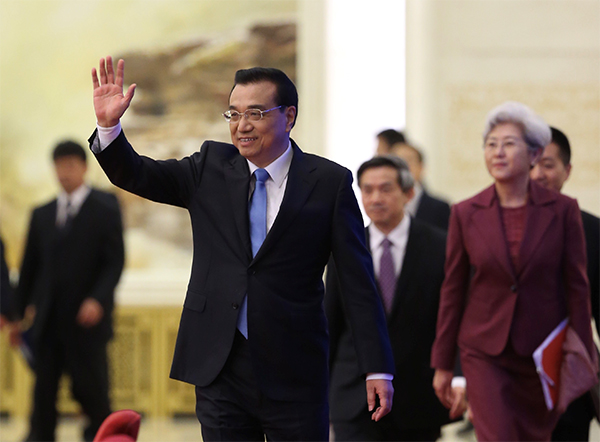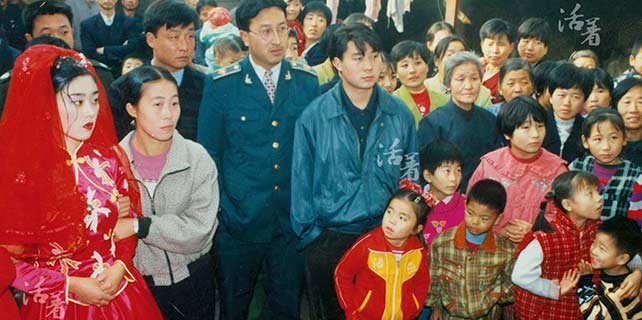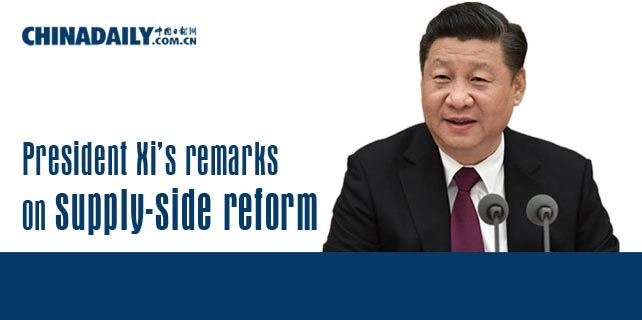Highlights of Premier Li's press conference
 |
|
Premier Li Keqiang walks to the press conference during the annual two sessions in Beijing on March 15, 2017. [Photo by Feng Yongbin/chinadaily.com.cn] |
Exchange rate
China has ample foreign exchange reserves to satisfy the demands of imports and short-term debt repayments.
China does not want to resort to yuan depreciation to boost exports as that would dampen the restructuring and upgrading of the corporate sector.
"We also do not want any trade war with others and we have stuck to reform of the yuan's exchange rate formation mechanism to keep it basically stable at reasonable and equilibrium levels." More
Laid-off workers
Helping laid-off workers find new jobs is the most important issue for China as it works to reduce industrial overcapacity.
Last year, the central government set up a 100 billion yuan ($14.4 billion) fund to help workers and also asked local governments to set up similar funds. Assistance has already been provided to 720,000 laid-off workers.
Efforts to cut overcapacity will be extended this year to coal-fired power generation. Together with the people who are still to be re-employed from 2016, China will need to help about 1 million workers this year.
The key is to continue generating jobs. Thanks to the initiative of massive entrepreneurship and innovation, many jobs have been created, while traditional drivers of growth have been upgraded, which is also generating job opportunities. More
Land use
The State Council has asked related departments to come up with proposals about laws on the protection of real estate.
When the 70-year term of land use for residential buildings ends, owners can renew the lease without applying, and no preset conditions are set, and it will not affect any transactions of the property. More
Asia-Pacific region
Premier Li hopes cooperation between China and the United States in the Asia-Pacific region will bring opportunities to ASEAN countries, instead of trouble.
China does not want to see any party in the Asia-Pacific region feel compelled to choose sides under the influence of a Cold-War mentality.
The Asia-Pacific is the common home of all countries in the region, and China believes regional affairs should be decided and handled on the merits of each case. More
















